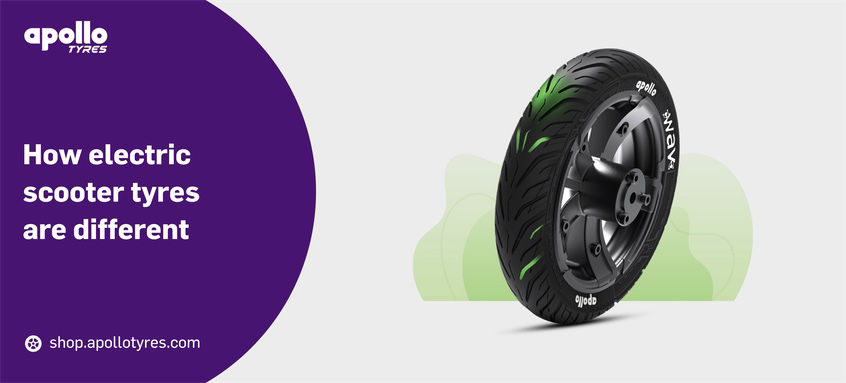
Yes, electric scooter tyres can be different from those used on traditional, internal combustion engine (ICE) scooters in certain aspects. While there are similarities in terms of basic tyre construction, factors such as design, performance requirements, and maintenance considerations may vary between electric scooters and traditional scooters. Here are some key points to consider:
1. Tyre Construction:
Electric Scooters: tyres designed for electric scooters are often optimized for the characteristics of electric propulsion systems. They may be engineered to handle the instant torque delivery of electric motors and the specific weight distribution of electric scooter designs.
Normal Scooters: tyres for traditional scooters are generally designed to accommodate the characteristics of internal combustion engines. They may be more accustomed to handling the power delivery and weight distribution associated with traditional engines.
2. Performance Characteristics:
Electric Scooters: Due to the instant torque provided by electric motors, tyres for electric scooters may be designed to offer good traction and grip, especially during quick accelerations.
Normal Scooters: tyres for traditional scooters are designed with considerations for the power delivery characteristics of internal combustion engines. The performance requirements may differ based on the engine's power delivery and torque curve.
3. Tyre Size and Load Capacity:
Electric Scooters: The tyre size and load capacity for electric scooters can be specific to the design of the electric scooter, considering factors such as battery weight and motor placement.
Normal Scooters: tyres for traditional scooters are designed based on the weight distribution and load capacity relevant to the internal combustion engine and the scooter's overall design.
4. Quiet Operation:
Electric Scooters: Electric scooters are known for their quiet operation. tyres designed for electric scooters may aim to reduce road noise to complement the quiet nature of electric propulsion systems.
Normal Scooters: Traditional scooters with internal combustion engines may have different considerations regarding noise, and tyre design may not specifically target minimizing road noise.
Read More: Choosing The Right Tyre
5. Maintenance Considerations:
Electric Scooters: Electric scooters may have specific maintenance requirements related to the tyres, considering the weight of the battery and the impact on tyre wear. Regular inspections and proper inflation are still crucial for both safety and efficiency.
Normal Scooters: Traditional scooters will have maintenance considerations similar to those of electric scooters, such as routine inspections, proper tyre inflation, and addressing any issues related to tyre wear.
6. Regenerative Braking Impact:
Electric Scooters: Some electric scooters use regenerative braking systems to recharge the battery during braking. tyres may need to handle the effects of regenerative braking, affecting wear patterns.
Normal Scooters: Traditional scooters typically do not use regenerative braking systems, so tyre wear patterns may differ.
7. Environmental Considerations:
Electric Scooters: As electric scooters align with environmental sustainability, tyre manufacturers may focus on producing tyres with eco-friendly materials and low rolling resistance to enhance overall efficiency.
Normal Scooters: While environmental considerations are important for all vehicles, the specific tyre features may vary based on the technology and design of the scooter.
In summary, while there are commonalities in tyre construction and maintenance considerations, electric scooter tyres can be engineered to cater to the unique characteristics of electric propulsion systems, including instant torque delivery and the specific weight distribution associated with battery placement. However, the differences are not universally applicable to all electric scooters, and it ultimately depends on the design and specifications of individual models. Regular tyre maintenance, regardless of the scooter type, remains crucial for safety, performance, and overall longevity.

